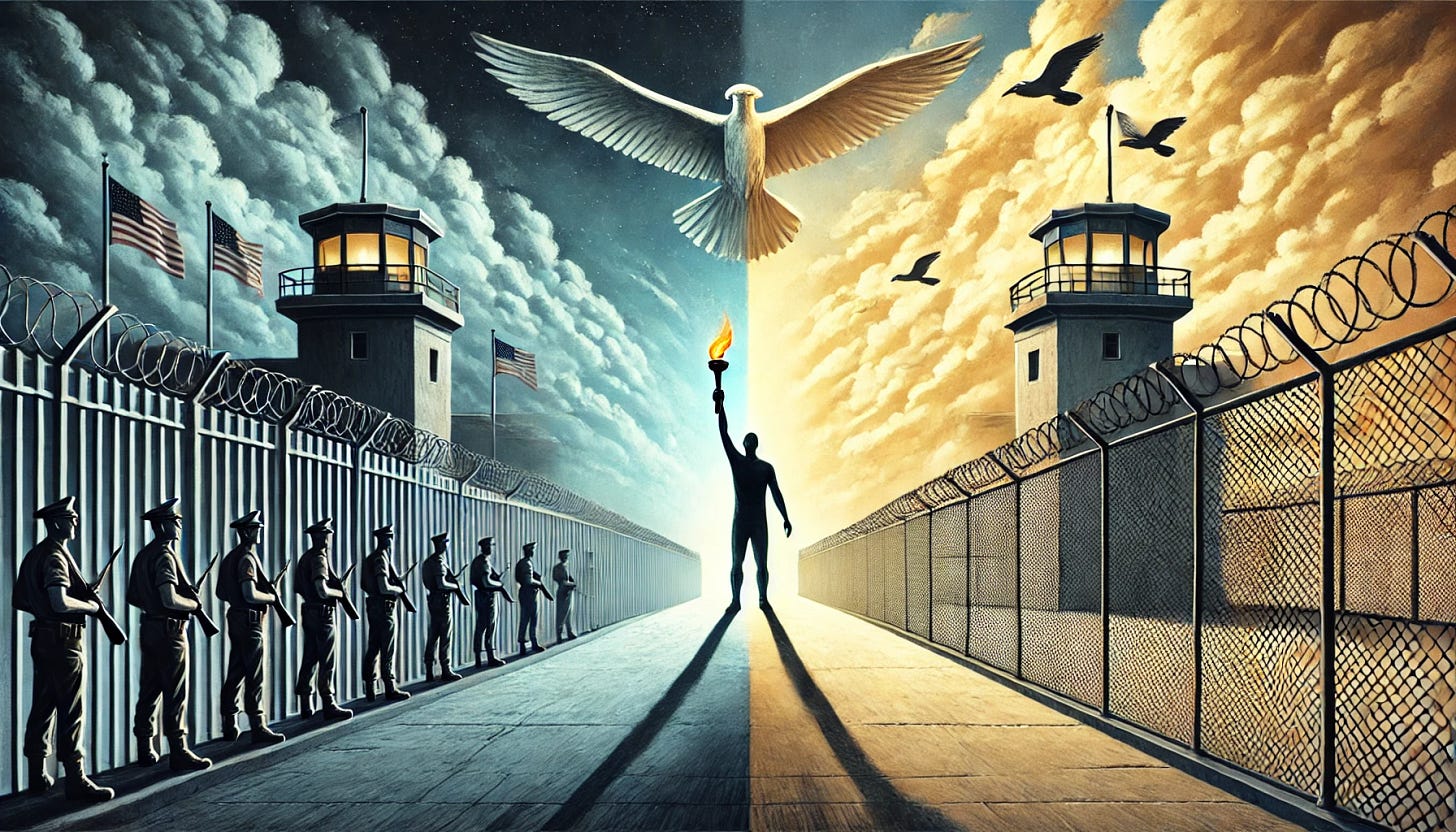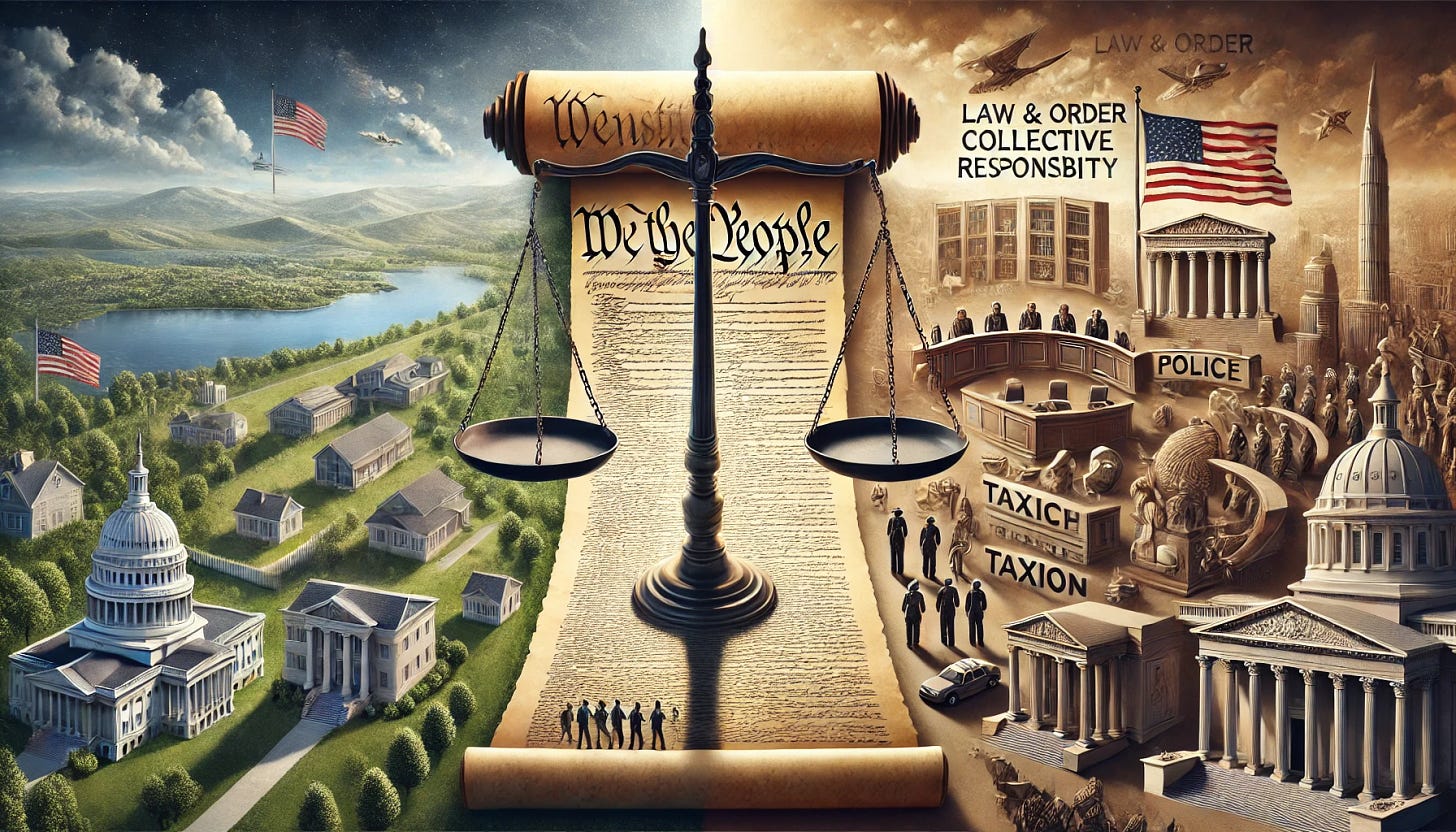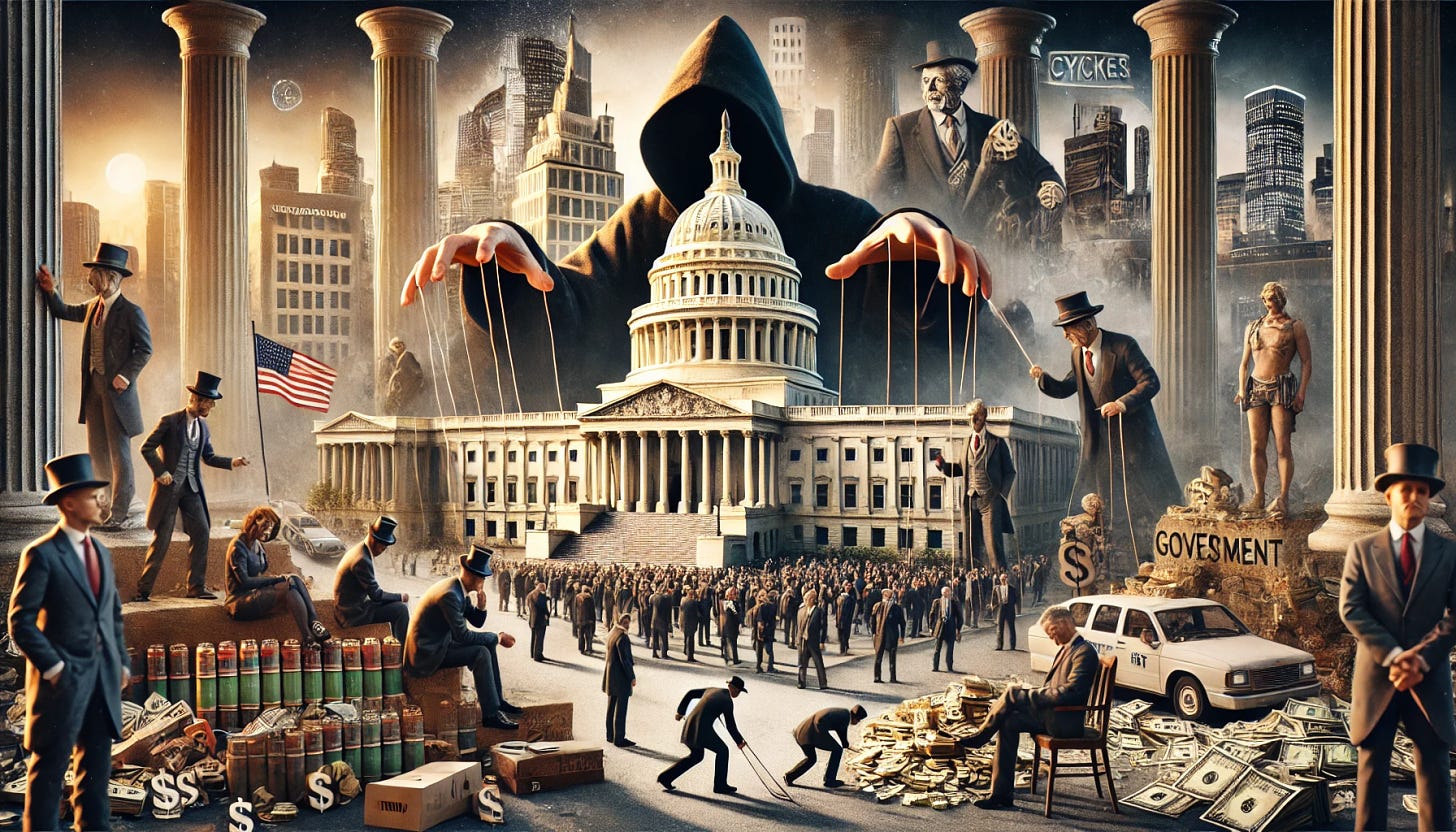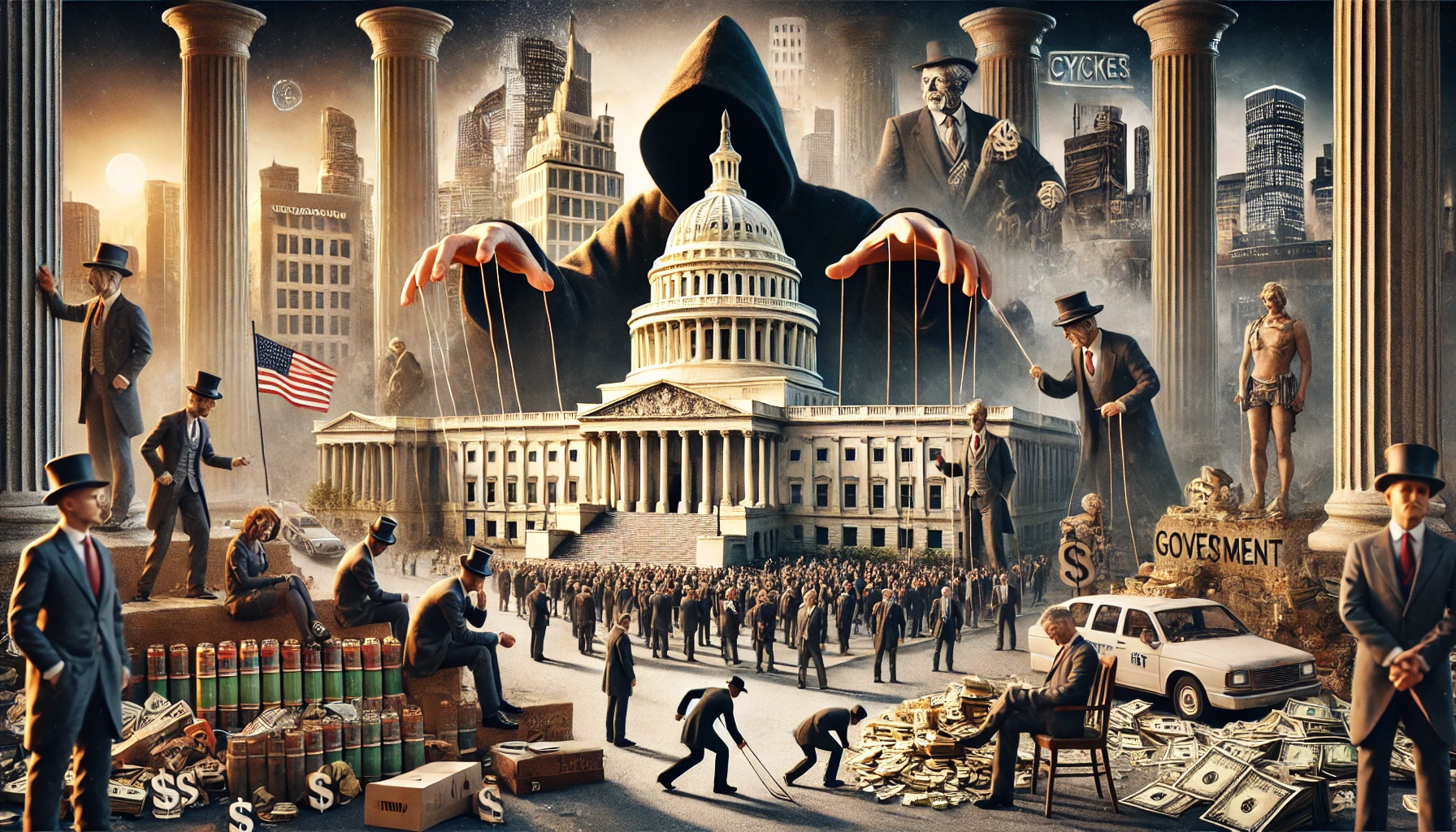“Those who would give up essential Liberty, to purchase a little temporary Safety, deserve neither Liberty nor Safety.” – Benjamin Franklin

The Role of Government: Collective Order vs. Individual Liberty
The United States government, like most throughout history, exists not to serve the individual, but to preserve order and maintain a stable society. A prime example of this is the case of Kelo v. City of New London (2005), where the U.S. Supreme Court ruled that private property could be seized for economic development purposes. This decision underscores how the government often prioritizes collective progress over individual property rights. This is the death of liberty as we know it.
Historically, governments have always prioritized the collective good over the needs of individuals. From the Roman Empire to Middle Age monarchies, laws, taxes, and military conscription were designed to maintain power and protect the state’s interests. These systems recognized that a society driven solely by individual desires would collapse; instead, public order, economic stability, and defense from external threats were the primary objectives.
Liberty in Contemporary Times
Even in modern democracies, where individual rights are emphasized, the government’s primary role is to maintain the social contract. Taxation, public safety policies, and national defense all reflect the reality that citizens must make sacrifices for the greater good. If the government existed solely to serve individuals, there would be no justification for taxes, regulations, or conscription. However, to ensure a functional society, individuals must contribute to services like schools, infrastructure, and national defense—benefits they may not directly receive.
This collectivist approach is also evident in how laws are created and enforced. Governments routinely enact policies that limit personal freedoms in the name of public safety, such as traffic laws, public health mandates, and zoning regulations. National security and public health often take precedence over personal autonomy. Appeals to individual rights are important but tend to be secondary to the state’s interest in preserving order and societal stability. Ultimately, individual rights are protected only when they align with the broader framework of societal welfare.

Top Examples of Government Prioritizing Collective Needs
- Taxation: The U.S. federal income tax system funds national defense, infrastructure, education, and welfare programs that benefit society as a whole. Tax dollars support services like public roads, Social Security, and Medicare, all of which prioritize the needs of the collective over individual preferences.
- Public Health Policies: During the COVID-19 pandemic, governments worldwide imposed lockdowns, mask mandates, and vaccine requirements. While these measures infringed on personal freedoms, they were enacted to prevent healthcare system collapse and protect public health. This clearly demonstrates how the government prioritizes the majority’s safety over individual autonomy.
- Eminent Domain: In the U.S., the government can seize private property for public use, such as building highways or hospitals, under eminent domain laws. This practice prioritizes societal infrastructure over personal property rights.
- Military Conscription: The draft, used during times of war, shows how national security can override individual freedom. Over 10 million men were drafted during WWII, highlighting the state’s prioritization of collective defense over personal liberty.
- Social Security and Medicare: Funded through payroll taxes, these programs provide a safety net for the elderly and disabled. Even if individuals would prefer to keep their earnings, they are required to contribute for the sake of societal welfare, emphasizing the collective over the individual.
These examples reinforce that governments operate to maintain the common good, often limiting individual freedoms to serve the collective.

Comparison to the Founding Principles of the U.S.
The U.S. Declaration of Independence and Constitution were designed to establish a balance between individual liberty and collective order. The Founders, influenced by Enlightenment thinkers like John Locke, envisioned a government deriving its power from the consent of the governed, with the primary purpose of securing individual rights to “Life, Liberty, and the pursuit of Happiness.” This focus on individual freedoms was paramount but always considered within the context of societal stability.
The U.S. Constitution, especially through the Bill of Rights, enshrines protections like free speech, religious freedom, and privacy. However, the Founders also understood that unchecked individual freedom could lead to chaos. The Constitution’s preamble—”to form a more perfect Union, establish Justice, insure domestic Tranquility, provide for the common defense, promote the general Welfare”—acknowledges the necessity of balancing individual rights with public order and the collective good.
Thus, while the Founders championed liberty, they also recognized the need for a government that could limit individual autonomy when necessary for societal stability. This is the same tension that defines modern governance, where individual freedoms are often balanced with collective responsibility.

Examples of Corruption Influencing Government Actions
While the government is intended to serve the public, powerful elites have historically influenced policy for personal gain. These examples show how government actions can be manipulated to benefit a few at the expense of the many:
- Big Pharma and the Opioid Crisis, Companies like Purdue Pharma aggressively marketed opioids, downplaying their addictive potential. With support from government agencies like the FDA, these companies profited while devastating communities, illustrating how lobbying and political donations can corrupt public health decisions.
- The 2008 Financial Crisis. Wall Street banks engaged in risky subprime mortgage lending, leading to the 2008 financial crash. Deregulation policies, influenced by banking industry lobbyists, enriched a few but ultimately cost taxpayers billions in bailouts.
- The Military-Industrial Complex. Defense contractors like Lockheed Martin and Boeing have long influenced U.S. defense policies, lobbying for expansive defense budgets and military interventions. This has resulted in lucrative government contracts for these companies, often at the expense of public welfare.
These instances highlight how elite interests can manipulate government actions, compromising both liberty and public safety in favor of profit. In the future, it’ll only get worse. Technology will lead us into a situation where the government has more control than ever.
Conclusion
Governments have always had to balance individual freedoms with the collective good. Whether through taxation, military service, or public health mandates, societal stability often takes precedence over personal autonomy. However, when elite interests hijack this balance, the system risks prioritizing the few over the many. While the U.S. Declaration of Independence and Constitution emphasize individual liberty, they also recognize the need for societal order, a tension that continues to shape governance today.
If government is supposed to serve the people, it’s doing a great job of serving only a few of them.
Did you know? The U.S. government spent $700 billion bailing out banks during the 2008 crisis, but the average American household lost $5,800 in the stock market crash.
With Strength and Honor,
Chad


